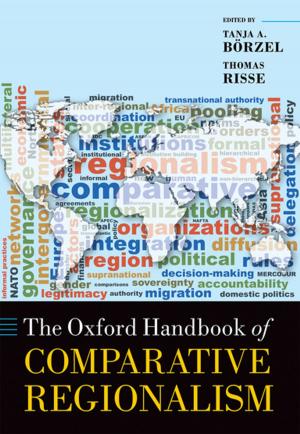The Oxford Handbook of African Archaeology
Nonfiction, Social & Cultural Studies, Social Science, Archaeology, Business & Finance, History| Author: | ISBN: | 9780191626159 | |
| Publisher: | OUP Oxford | Publication: | July 4, 2013 |
| Imprint: | OUP Oxford | Language: | English |
| Author: | |
| ISBN: | 9780191626159 |
| Publisher: | OUP Oxford |
| Publication: | July 4, 2013 |
| Imprint: | OUP Oxford |
| Language: | English |
Africa has the longest and arguably the most diverse archaeological record of any of the continents. It is where the human lineage first evolved and from where Homo sapiens spread across the rest of the world. Later, it witnessed novel experiments in food-production and unique trajectories to urbanism and the organisation of large communities that were not always structured along strictly hierarchical lines. Millennia of engagement with societies in other parts of the world confirm Africa's active participation in the construction of the modern world, while the richness of its history, ethnography, and linguistics provide unusually powerful opportunities for constructing interdisciplinary narratives of Africa's past. This Handbook provides a comprehensive and up-to-date synthesis of African archaeology, covering the entirety of the continent's past from the beginnings of human evolution to the archaeological legacy of European colonialism. As well as covering almost all periods and regions of the continent, it includes a mixture of key methodological and theoretical issues and debates, and situates the subject's contemporary practice within the discipline's history and the infrastructural challenges now facing its practitioners. Bringing together essays on all these themes from over seventy contributors, many of them living and working in Africa, it offers a highly accessible, contemporary account of the subject for use by scholars and students of not only archaeology, but also history, anthropology, and other disciplines.
Africa has the longest and arguably the most diverse archaeological record of any of the continents. It is where the human lineage first evolved and from where Homo sapiens spread across the rest of the world. Later, it witnessed novel experiments in food-production and unique trajectories to urbanism and the organisation of large communities that were not always structured along strictly hierarchical lines. Millennia of engagement with societies in other parts of the world confirm Africa's active participation in the construction of the modern world, while the richness of its history, ethnography, and linguistics provide unusually powerful opportunities for constructing interdisciplinary narratives of Africa's past. This Handbook provides a comprehensive and up-to-date synthesis of African archaeology, covering the entirety of the continent's past from the beginnings of human evolution to the archaeological legacy of European colonialism. As well as covering almost all periods and regions of the continent, it includes a mixture of key methodological and theoretical issues and debates, and situates the subject's contemporary practice within the discipline's history and the infrastructural challenges now facing its practitioners. Bringing together essays on all these themes from over seventy contributors, many of them living and working in Africa, it offers a highly accessible, contemporary account of the subject for use by scholars and students of not only archaeology, but also history, anthropology, and other disciplines.















